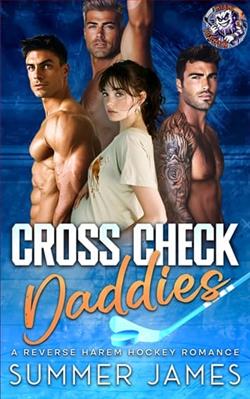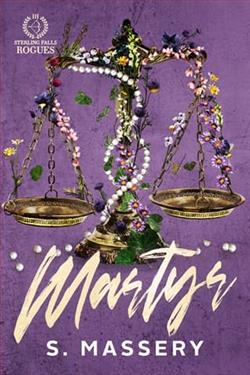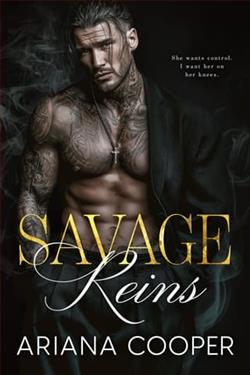Page 94 of How to Walk Away
“They’re just jealous,” Kit said.
“Should we not make fun of your accent, then?” I asked. It was one thing to make fun of an accent that was unassailably cool—and quite another to kick an accent that was down.
“You can make fun of Scottish,” he said, “if I can make fun of Texan.”
Kit and I looked at each other. “Canyou make fun of Texan?”
Ian pointed at me. “You say ‘tumped’ for ‘fell over.’ You know that’s not a word, right?”
“Itisa word,” I said.
Ian shook his head. “Only in Texas.”
We loved to try to copy his accent, but we were bad at it. We also gave him American words to try, especially Native American place names that Kit Googled on her phone, like the Caloosahatchee River, Lake Tangipahoa, and Quittapahilla Creek. It cracked her up to hear him try, and it mesmerized me. I’d watch his lips forming those sounds, pulling back, and pouting out, and making that classic Scottisho. Sometimes I forgot to laugh. Sometimes I got hypnotized by it.
He turned out to be remarkably game. We got started to bring him out of his stoic shell, but it always got us going, too. We laughed so hard at dinner sometimes that we couldn’t even finish our food. It was the kind of goofy, uncontrollable laughing you almost never do in grown-up life: Things weren’t just funny, they werehysterical—even things that were objectively not even funny: the noise of a scooting chair, a veggie dumpling that got dropped on the floor, a nurse coming into the room to investigate the noise.
It’s strange that I could have laughed so hard under those circumstances, during that very dark moment in my life. But I’ve decided sorrow can make things funnier. Endure enough hardship, and you start really needing a good laugh. I remember my dad and his brother, on the day of their own mother’s funeral back when I was a kid, in the car, driving to the cemetery, making fun of all their relatives and cracking eachother up. They were in the front seat, and Kit and I and our mom were in the back, and I watched those two grown men, now motherless, having just lost forever a woman they both truly loved, not just chuckle a bit buthowlwith laughter.
I was maybe ten at the time. “What are you doing?” I demanded of my dad. “How can you be laughing?”
“Sweetheart,” my dad said, “if we don’t laugh, we’re gonna cry.”
That’s what this laughing was like. It took us over. It made our faces hurt. And it happened not despite all the sadness, but because of it.
Kit was bolder than I was. She begged him to wear a kilt to work one day.
“Wear a kilt to this building,” she said, “and I’ll give you ten thousand dollars.”
“She doesn’t have ten thousand dollars,” I whispered to Ian.
Ian smiled. “And I don’t have a kilt, so we’re even.”
Mostly, it was Kit and me egging Ian on, but one night, eating sushi, he picked up a teaspoon-sized wad of wasabi with his chopsticks, held it up so we could see it, and then said, “Do you dare me to eat this?”
I looked at him like he was crazy. “The whole thing?” One tenth of that wasabi ball would be enough to send steam out his ears.
Ian nodded.
“No,” Kit said. “I won’t dare you. Not even I am that crazy.”
“I’ll dare you,” I said—and before I could take it back, Ian had popped the whole thing in his mouth, swallowed, and thrown his arms up in victory.
Kitty and I both gaped at him.
“Not so bad,” Ian said, but the words were barely out before tears started running down his cheeks, and his face turned red, and he started panting and hissing like a feral cat.
He grabbed his water and drank the whole bottle in one go. Then he grabbed my water and drank it all. Then Kit’s, too.
“Whooo!” he said, pacing around the room. “Fuck—that stings.”
“Curse in Scottish!” we called out.
But he was jogging in place now. “Not my best idea.”
“Say ‘bawjaws’!” Kit suggested.
“Call yourself a ‘numpty jobber’!” I jumped in.















